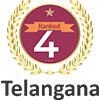Unexpectedly educational and surely riveting, “Animal Farm” by George Orwell is a must read for any student looking to understand the processes that underlie the establishment of an elitist, autocratic system of government. Orwell’s works are poignant and telling of Cold War realities which continue to shape our world discreetly. As a student of Political Science, his books are a direct reflection of our syllabus in the 12th grade; overall, “Animal Farm” is a wonderful starting point for any student looking to get into political fiction, or enhance their political acumen.
Satires, in my opinion, truly embody the pinnacle of literature, and this book does exactly that. Compared to maestros of satire like Voltaire and Jonathan Swift, Orwell will have you grinning through the breezy read (a mere 140 pages), before you close the book and realise that the joke is actually on you. Curated like a punch in the gut and served like dessert, the book uses farm animals as a metaphor to simplify the concepts that cause the creation and promulgation of a totalitarian system. The utterly simple language used to do the same is all the more reason it should be on your list of books to be read.
At skin-level, “Animal Farm” is a story about a group of exploited animals that take control of their farm after driving its owner away; it is about their dreams of equality and liberation. Indeed,
their farm is then founded on egalitarian principles– ensuring that every animal gets the fruits of its labour and enjoys its freedom. The pigs head this group, because of their intellectual prowess and initial impetus to the movement; they handle the policy making and coordination as the very few literate ones of the lot. Developmental projects are announced and production is scaled to fulfil their own needs. The neighbouring human farms are seen as competition, and are to be kept away from.
But as they say, all power corrupts and absolute power corrupts absolutely. There are wars between the animals and the humans, causing great damage and destruction. The traditional leaders are replaced by less idealistic and more cunning ones. The political system degenerates into a personality cult run by fear, with the leader at its head and everyone’s status determined by said leader’s whims and fancies. The pigs begin to enjoy an elevated status and increased privileges, much to the dismay and confusion of the other animals. Truths are twisted and histories are rewritten to keep up a false doctrine of the might of these new leaders. As the farm gets increasingly business-oriented, the humans become partners to the pigs and the other animals look on, unable to find much difference between the two.
The political circumstances we find ourselves surrounded with urge us to be informed and well-versed individuals; our opinions mustn’t betray a sheep-flock approach to political comprehension, especially with the tools we have at our disposal as students. The highlight of the book is that it elucidates the process of democratisation, followed by communistic living, which is slowly and tactfully replaced by despotic, authoritarian rule.
One can easily identify various political entities around us and where they stand on this spectrum currently, simply by drawing parallels with the way an ordinary citizen is treated in comparison with the political elite. The book has profound commentary on the evolution of discriminative systems too, showing how stereotypes develop and become entrenched over time. Additionally, the thankless plight of the working class and the hypocrisy of the ruling class in such contexts is weaved into the narrative, making the text ever-relevant.
Holiday season is approaching us swiftly, and as the academic pressure mounts, video games and doom scrolling might not be the best ways to cope. Pick up this short book, lined with marvellously dry humour and poignant social commentary, and read away about pigs, power and the very little that lies in between.



